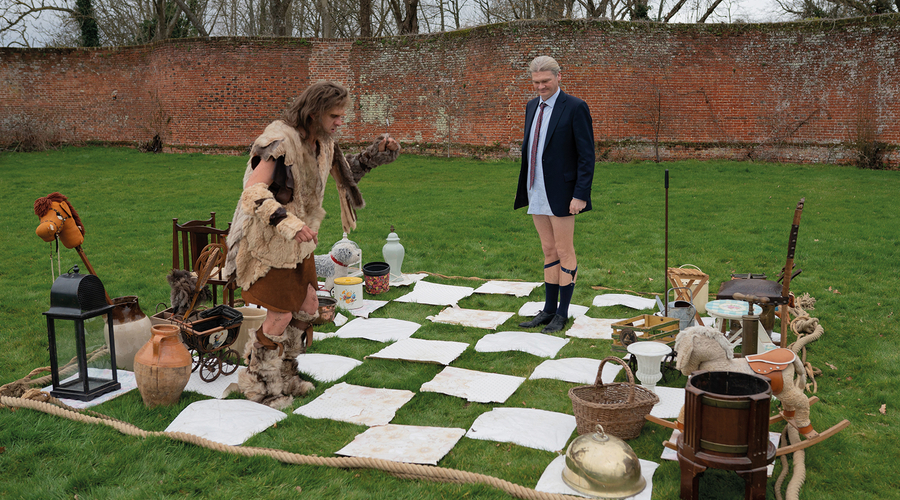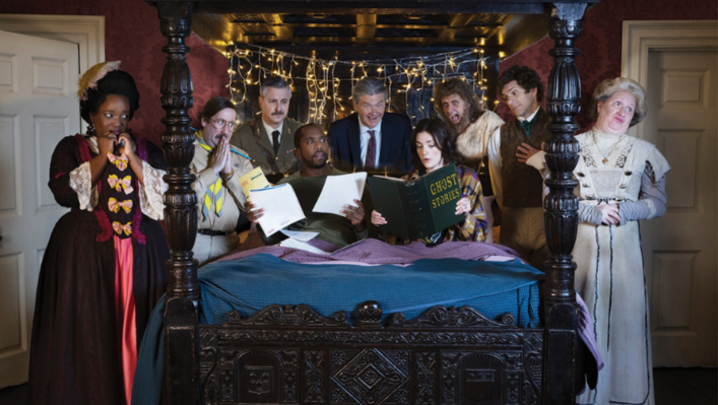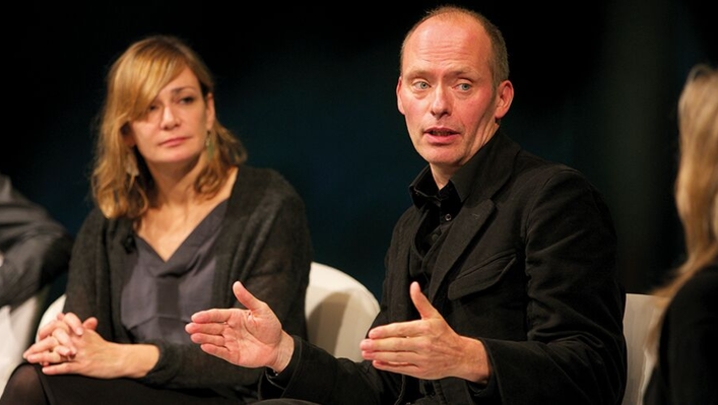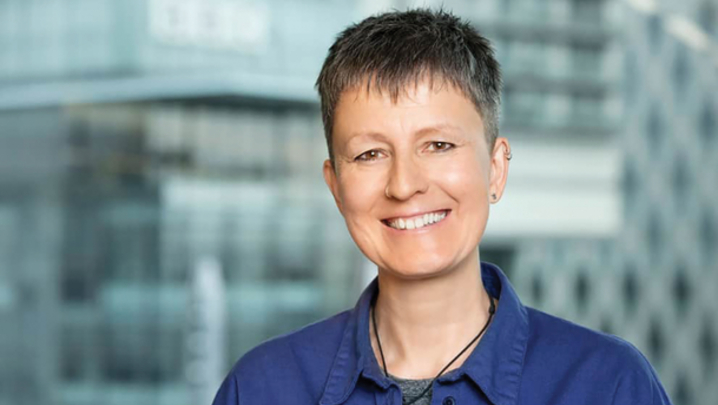Gwenda Carnie has the business side of television covered as Media and Content Business Affairs Director at Industry Media.
She deals with everything from book rights to script deals, development, broadcaster agreements, talent negotiations, financing and distribution. Carnie started out as a lawyer at a City law firm, but had her head turned during a secondment to MTV.
What does the job involve?
Essentially, it’s deal making: helping two sides agree commercial terms. In development, I could be taking out options on books, negotiating with scriptwriters’ agents, or making agreements with co-producers, broadcasters or distributors who are funding a series.
When a show is commissioned, I could be negotiating with director, producer and talent agents, or advising on copyright or clearance issues with location owners.
My job also involves drafting contracts and giving advice on copyright and risk-assessment.
Do you need a legal background?
I’m legally trained, but you don’t have to be – some of the most amazing deal-makers I know are not lawyers. You have to know your way around a contract but that can be picked up along the way. A very senior legal partner once told me there’s not much law in the law – and that’s true! But sometimes it’s comforting to know that you can call on your legal training.
Who do business affairs specialists work for?
Often for broadcasters – I’ve worked for three: MTV, BBC Wales and S4C. Industry Media has a range of clients, including TV and film production companies in all genres (drama, children’s, factual, entertainment and animation), talent and literary agents and some broadcast platforms.
What was your route into business affairs?
I knew I wanted to work in either music or TV law. I did a French degree and studied French cinema, which I loved. But, coming from a big family in South Wales, I knew very early on that I’d need financial security. Intellectual property really interested me and so I converted to law with the help of sponsorship from a big City law firm.
I moved to London and worked for what is now Reed Smith, a law firm that acted corporately for the BBC and MTV. I was seconded to MTV and found that I enjoyed that environment more. I liked the more relaxed atmosphere of working alongside production teams.
What was your first job inside TV?
I moved back to Cardiff and was a general commercial lawyer for a while before a job came up in business affairs at BBC Wales.
I worked in radio and TV [production and commissioning] and online, across all the genres, for a decade. That’s really where I cut my teeth in TV. I learnt a lot about TV production, management – and politics! – and saw a lot of change.
How has your career developed?
After the BBC role, I freelanced for a while, taking a maternity cover position at S4C and freelance roles at Lawyers on Demand and Wiggin.
While most business affairs specialists are found in big indies or broadcasters, there are quite a few working as consultants. I joined Industry Media as a consultant three years ago and very recently became a director and partner, alongside Huw Walters and Rosemary Klein, who are experienced and very supportive colleagues.
Our clients include Red Planet Pictures, which makes BBC One drama Death in Paradise, and Monumental Television (BBC One sitcom Ghosts).
What skills do you need?
Language skills, because words are your tools, technical drafting skills and the ability to understand nuance. Empathy, too: you need to understand what’s worrying your client and the other side. And then you have to be creative to find a solution that hopefully satisfies both.
Understanding the commercial side of TV production and development and the day-to-day issues that production teams encounter is also an essential part of the job. Industry Media prides itself on its ability to work closely with producers.

Which people and departments do you work with closely?
Development teams, CEOs and MDs of production companies and, when a show goes into production, the line manager/production management team.
What do you bring to work with you?
A “to do list”, which I update meticulously – it’s old school, written on paper. A notebook and pen, water and coffee. I’ve also got my two spaniels in my garden office.
What’s your biggest challenge?
Managing and being fair to yourself because the volume of work and demands can sometimes be overwhelming. You need to feel in control, even if you might not always be!
Today, we’re dealing with two sizeable productions; I have a call with a development team; and I have to work on a writer’s deal, co-production agreement and a book option.
What are the best and worst parts of the job?
The best is finding agreement where people thought there wasn’t one, and then making a deal. The worst is that you can’t please everyone all the time.
What programme do you remember most fondly?
When I was at BBC Wales, I worked on a BBC Two film, A Home for Maisie, about a remarkable couple who successfully adopted children and gave them fantastic lives.
They’d adopted a difficult child and there were lots of duty of care issues about how to represent the child on screen. There was a tricky balance between maintaining the BBC’s freedom to make the programme it wanted to make and ensuring that the child was properly protected.
Agreements with various agencies and contributors had to be negotiated, setting out clearly what could and could not be done. It was a fascinating and worthwhile programme to be involved with.
How has the job changed?
With the growth of streaming, there are more commissioners now and the work is more international. The financing of programmes has also got more complicated and will get more so.
Personally, I’ve worked in Wales for most of my career and it’s become much easier to be based outside London – the change in the past five to 10 years has been incredible.
Covid, awful though it was, accelerated the out-of-London movement and really helped bridge the gap between London and the rest of the UK. There’s still more to do, though: Wales is a massively untapped resource.
A lot of production has moved to Wales and elsewhere but often headquarters have stayed in London. It would help the ecology here and improve the prospects of sustainability if more of the corporate and business stuff came, too.
What advice would you give to someone wanting to work in business affairs?
If you’re going to take the legal route, which is the most obvious one, do your research and find some law firms with media clients. You could look for a start with a broadcaster or production company and learn on the job; finding a mentor with the right skills to teach you is like gold dust – if you find one, hang on to them!
What ambitions do you still have?
It’s not always been a smooth path but, right now, I’m in a very good place. I’m curious about all aspects of the TV business and working at Industry Media means I meet lots of different people.
I’m still ambitious. I think, post-children, women can be – it’s like having a second lease of life. I’ve been lucky to get where I am and I look around me in Wales and I think there is a responsibility to pass things on and give other people a chance.
Gwenda Carnie was interviewed by Matthew Bell.







